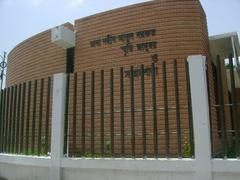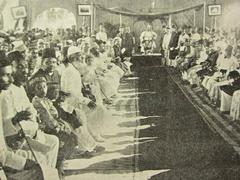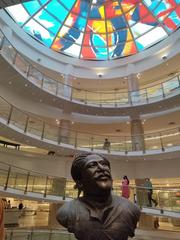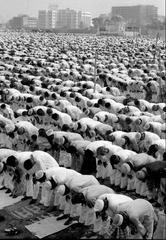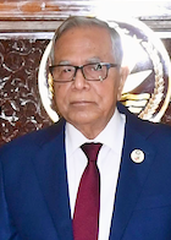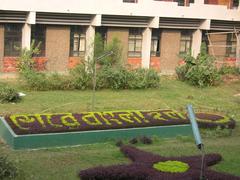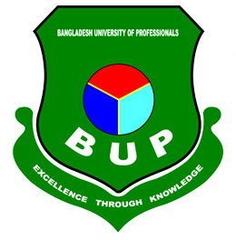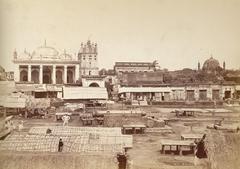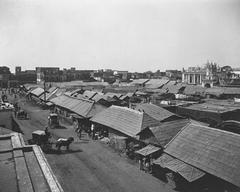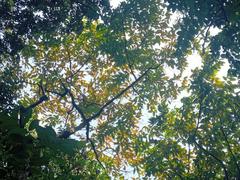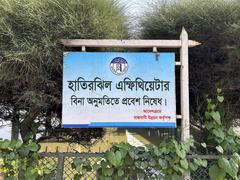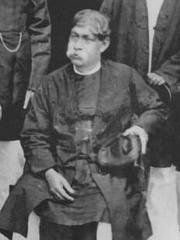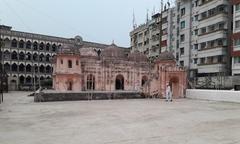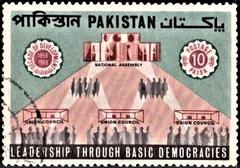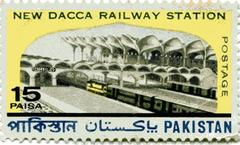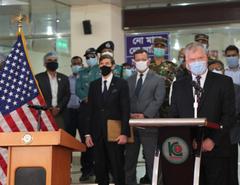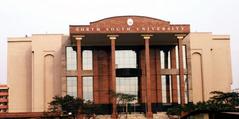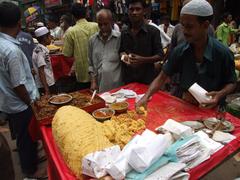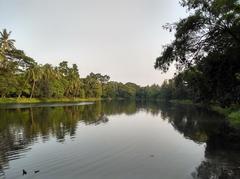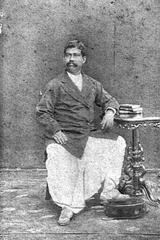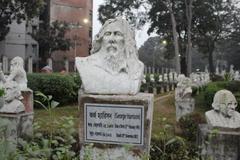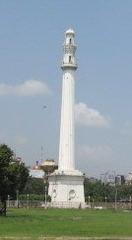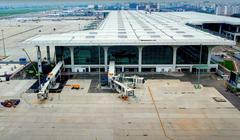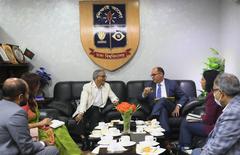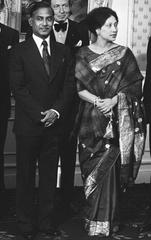University of Development Alternative (UODA) Dhaka: Visiting Hours, Tickets, and Historical Sites Guide
Date: 04/07/2025
Introduction: UODA’s History and Cultural Significance
Located in the dynamic Dhanmondi district of Dhaka, Bangladesh, the University of Development Alternative (UODA) stands as a pioneering institution redefining higher education. Established through the visionary efforts of the Student Welfare Organization of Bangladesh (SWOB) in 1978, UODA was formally recognized as a university in 2002. Its foundation is built on the Complete Education for Alternative Development (CEFAD) philosophy, which harmonizes technical proficiency, ethical values, and social consciousness. UODA is not only an academic institution but also a catalyst for social mobility and educational reform in Bangladesh, attracting prospective students, researchers, and culturally inclined travelers alike. Visitors will discover a campus deeply embedded in Dhaka’s urban tapestry, offering accessible visiting hours, guided tours, and a welcoming atmosphere that reflects its commitment to holistic development (UODA Official, Wikipedia).
Contents
- Discovering UODA: Dhaka’s Educational Landmark
- Historical Evolution and CEFAD Vision
- Planning Your Visit: Hours, Tickets, and Travel Tips
- Academic Leadership and Programs
- Events and Community Engagement
- Institutional Significance and Social Impact
- Visitor Guide: Campus Life, Accessibility, and Tips
- Frequently Asked Questions (FAQs)
- Visuals and Media
- Related Resources and External Links
- Summary and Call to Action
Discovering UODA: Dhaka’s Educational Landmark
UODA is a symbol of academic innovation and social responsibility. Situated in one of Dhaka’s most accessible neighborhoods, it serves as a testament to the transformative power of education. The university’s mission is to produce graduates who are not only skilled professionals but also conscientious citizens, making UODA a notable destination for those interested in Bangladesh’s educational evolution.
Historical Evolution and Vision Behind UODA
From Social Initiative to University
UODA’s roots trace back to the SWOB initiative in 1978, focusing on youth empowerment. The subsequent establishment of the College of Development Alternative (CODA) in 1992 and the School of Development Alternative (SODA) in 1996 further solidified the movement towards alternative, development-oriented education (Wikipedia, AllUniversity.info).
The CEFAD Philosophy
At its core, UODA is guided by the Complete Education for Alternative Development (CEFAD) model, championed by Professor Mujib Khan. This approach integrates intellectual growth, technical expertise, and moral education, aiming to foster balanced individuals who can contribute meaningfully to society (UODA Official).
Planning Your Visit to UODA
Visiting Hours and Accessibility
- Days: Monday to Friday
- Time: 9:00 AM – 5:00 PM
- Closed on: Weekends and public holidays
- Location: 80 Satmosjid Road, Dhanmondi, Dhaka-1209
The campus is easily accessible via public transport, ride-sharing services, and taxis (UODA Official).
Tickets and Guided Tours
- Entry: Free for casual visitors
- Guided Tours: Available by prior arrangement through the university’s website or visitor office
- Group Visits and Special Events: Advanced booking recommended
Facilities and Accessibility
UODA is committed to inclusivity, offering ramp access and assistance for visitors with disabilities. Clear signage and helpful staff ensure a smooth experience.
Academic Leadership and Programs
Visionary Leadership
Founded by Professor Mujib Khan, UODA’s leadership continues to promote CEFAD’s holistic educational ideals. The Vice Chancellor and Pro-Vice Chancellor are dedicated to upholding academic excellence and fostering ethical leadership (UODA Pro-VC).
Academic Programs
UODA offers undergraduate and postgraduate programs across six faculties, with strong research output, particularly in life sciences, engineering, and the arts. It is ranked 9th among Bangladeshi universities in the AD Scientific Index 2025 (EduRank).
Events and Community Engagement
Throughout the academic year, UODA hosts a variety of cultural festivals, exhibitions, seminars, and public lectures. These events are open to visitors and provide a window into the university’s vibrant student life and community-focused initiatives.
Institutional Significance, Vision, and Social Impact
Institutional Significance
UODA is a trailblazer in Bangladesh’s higher education sector, integrating academic, ethical, and social development in its curriculum (UODA About).
Vision: The CEFAD Model
The CEFAD philosophy emphasizes a three-tiered education system (school, college, university), holistic development, and a shift from rote learning to critical thinking and ethical reasoning (UODA About).
Social Impact
- Youth Empowerment: Diverse academic offerings and leadership training
- Moral Education: Programs designed to instill integrity and social responsibility
- Social Mobility: Accessible education for underserved populations
- Community Engagement: Service projects and internships promoting civic duty
- Educational Reform: Influencing national dialogue on alternative education models
Visitor Guide: Campus Life, Accessibility, and Tips
Campus Environment
UODA’s campus features modern academic buildings, green spaces, and cultural hubs. Key highlights include the central quad, School of Life Sciences, and tranquil gardens.
Facilities
- Academic Spaces: Well-equipped classrooms, labs, and library with Wi-Fi
- Student Life: Clubs, societies, and extracurricular activities spanning arts, literature, drama, debate, and sports
- Amenities: Cafeteria, hostels, recreational areas, and on-campus medical services
Location and Transportation
- Address: 80 Satmosjid Road, Dhanmondi, Dhaka
- Access: Buses, rickshaws, ride-sharing, and private vehicles; parking available
- Proximity: 15 km from Hazrat Shahjalal International Airport
Travel Tips
- Weather: Carry umbrellas or raincoats during monsoon season (June–September)
- Currency: Bangladeshi Taka (BDT); nearby exchange services
- Connectivity: Campus Wi-Fi and local SIM cards available
- Dining: Cafeteria and nearby eateries offer vegetarian and halal options
- Navigation: Use Dhaka Map for city exploration
Frequently Asked Questions (FAQs)
Q: What are UODA’s visiting hours?
A: Monday to Friday, 9:00 AM to 5:00 PM; closed weekends and public holidays.
Q: Is there an entry fee?
A: No, campus visits are free. Some events may require registration.
Q: Are guided tours available?
A: Yes, by prior arrangement via the university website.
Q: Is the campus accessible for people with disabilities?
A: Yes, with ramps and assistance available upon request.
Q: Can visitors attend classes?
A: Public lectures and events may be attended with permission; regular classes are for enrolled students.
Q: Are photography and videography permitted?
A: Generally in public areas, but seek permission for classrooms or restricted zones.
Visuals and Media
Alt tags: University of Development Alternative visiting hours, UODA campus tour, Dhanmondi historical sites, UODA tickets, UODA accessibility
Related Resources and External Links
- UODA Official Website
- Wikipedia: University of Development Alternative
- AllUniversity.info: UODA
- UODA Pro-Vice Chancellor
- EduRank: UODA Rankings
- Education in Bangladesh - UNESCO
- Alternative Education Models - World Bank
- Bangladesh Ministry of Education
- Dhaka Historical Sites and Monuments
- Bangladesh Tourism Board
- UODA Admission Portal
- Dhaka Map
Summary and Call to Action
Visiting UODA offers a unique opportunity to engage with an institution at the forefront of educational and social innovation in Bangladesh. From its accessible campus and guided tours to its vibrant academic culture and community engagement, UODA invites prospective students, researchers, and visitors to be part of its journey. For the latest news, event schedules, and virtual tours, visit the official UODA website and follow their social media channels. Enhance your experience by downloading the Audiala app for exclusive content and real-time updates.

